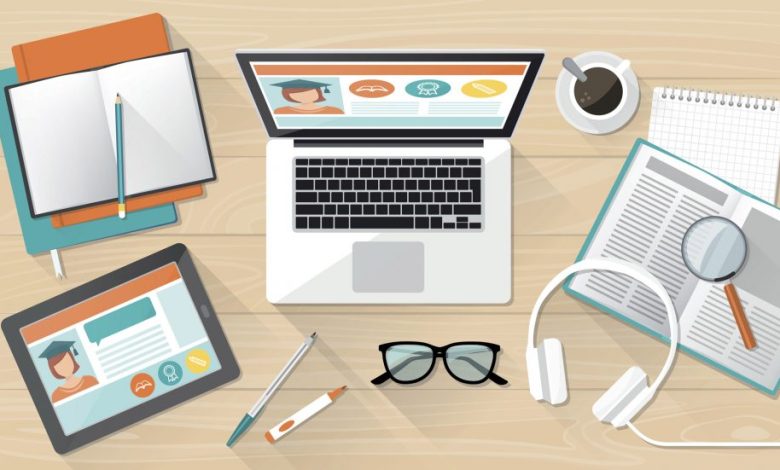Exploring Learning Tools: A Comprehensive Guide

In today’s digital age, learners have access to a vast array of tools and resources to support their educational journey. From traditional textbooks to cutting-edge technologies, these learning tools offer diverse opportunities for exploration, engagement, and growth. However, with so many options available, it can be overwhelming to navigate the landscape of learning tools and determine which ones are best suited to your needs. In this comprehensive guide, we’ll explore a wide range of tools for learn, from foundational resources to innovative technologies, to help you discover the tools that will enhance your learning experience and support your academic goals.
The Evolution of Learning Tools
Throughout history, humans have relied on various tools and resources to facilitate learning and transmit knowledge from one generation to the next. From cave paintings and oral traditions to scrolls and textbooks, the methods and mediums of education have evolved alongside advances in technology and communication. Today, with the advent of the internet and digital technology, learning tools have become more accessible, interactive, and personalized than ever before, revolutionizing the way we access and engage with educational content.
Foundational Learning Tools
Textbooks
Textbooks have long been a cornerstone of education, providing learners with comprehensive coverage of course material, key concepts, and foundational knowledge in various academic disciplines. They offer explanations, examples, and exercises to facilitate comprehension and retention, guiding learners through complex subjects and helping them build a solid foundation of knowledge essential for academic success.
Notebooks and Writing Instruments
Notebooks and writing instruments are essential tools for taking notes, organizing thoughts, and capturing ideas during lectures, discussions, and study sessions. Whether in traditional or digital format, notebooks provide learners with a dedicated space to record information, jot down thoughts, and create study guides. Pens, pencils, and highlighters facilitate note-taking and annotation, allowing learners to identify key information, important concepts, and relevant passages for review and study.
Libraries and Reference Materials
Libraries and reference materials offer learners access to a wealth of books, journals, and other resources to support their research and study. Whether it’s exploring the works of classic literature, conducting research on a specific topic, or delving into primary sources for historical analysis, libraries provide a treasure trove of knowledge across diverse disciplines and genres.
Digital Learning Tools
Online Learning Platforms
Online learning platforms offer a wide range of educational resources, courses, and tutorials on virtually any topic imaginable. Platforms like Coursera, Udemy, and Khan Academy provide learners with the flexibility to learn at their own pace, anytime, anywhere. They offer courses taught by experts from around the world, covering diverse subjects such as computer programming, business management, photography, and more.
Educational Apps
Educational apps provide learners with a convenient and accessible way to learn on the go, using their smartphones or tablets. Whether it’s brushing up on math skills, practicing a musical instrument, or learning a new language, educational apps offer interactive and engaging learning experiences that cater to diverse interests and preferences. Apps like Duolingo, SoloLearn, and TED offer bite-sized lessons, quizzes, and challenges to help learners acquire new skills and knowledge in a fun and interactive way.
Interactive Multimedia Resources
Interactive multimedia resources, such as videos, simulations, and virtual labs, offer learners immersive and experiential learning experiences. Whether it’s watching instructional videos on YouTube, conducting virtual experiments in a chemistry simulation, or exploring historical events in an interactive timeline, multimedia resources engage learners in active learning and make complex concepts more accessible and understandable.
Innovative Technologies
Virtual Reality (VR) and Augmented Reality (AR)
Virtual reality (VR) and augmented reality (AR) are immersive technologies that have the potential to revolutionize education by providing learners with interactive and immersive learning experiences. VR allows learners to explore virtual environments and simulate real-world scenarios, while AR overlays digital content onto the physical world, enhancing learning opportunities in a variety of contexts.
Gamification and Game-Based Learning
Gamification and game-based learning leverage the principles of game design to engage learners and motivate them to achieve their learning goals. These approaches use elements such as points, badges, leaderboards, and rewards to incentivize learning and encourage participation. Game-based learning takes this a step further by integrating gameplay mechanics into educational content, allowing learners to learn through play and exploration.
Artificial Intelligence (AI) and Machine Learning
Artificial intelligence (AI) and machine learning technologies are increasingly being integrated into educational tools and platforms to personalize learning experiences for individual learners. These systems analyze learner data to identify patterns, preferences, and areas for improvement, delivering customized content and recommendations to optimize learning outcomes.
Strategies for Choosing Learning Tools
Identify Your Learning Needs and Goals
Before exploring learning tools, take some time to identify your learning needs and goals. What subjects or topics are you interested in? What are your learning objectives? By clarifying your goals, you can narrow down your options and focus on the tools that are most relevant to your needs.
Experiment and Explore
Don’t be afraid to experiment with different learning tools and technologies to see what works best for you. Try out different platforms, apps, and resources to discover which ones resonate with your learning style and preferences. Keep an open mind and be willing to explore new tools and technologies to enhance your learning experience.
Seek Recommendations and Reviews
Seek recommendations and reviews from peers, educators, and experts to help you choose the right tools for learn for your needs. Reach out to friends, classmates, or online communities for recommendations on useful tools and resources. Look for reviews and testimonials from users who have experience with the tools you’re considering to get a sense of their strengths and weaknesses.
Consider Accessibility and Affordability
When choosing learning tools, consider factors such as accessibility and affordability. Look for tools that are easy to access and use, regardless of your location or device. Consider whether the tools offer free or affordable options, as well as any additional costs or subscriptions that may be required.
Conclusion
In conclusion, learning tools play a crucial role in supporting and enhancing the educational experience for learners of all ages and backgrounds. Whether it’s traditional resources like textbooks and libraries or innovative technologies like online platforms and virtual reality, these tools offer diverse opportunities for exploration, engagement, and growth. By exploring a wide range of learning tools and technologies, learners can discover the tools that best suit their needs and empower themselves to achieve their academic goals. As technology continues to evolve and new tools emerge, let us embrace the opportunities they present to unlock knowledge and unleash the full potential of learners everywhere.


